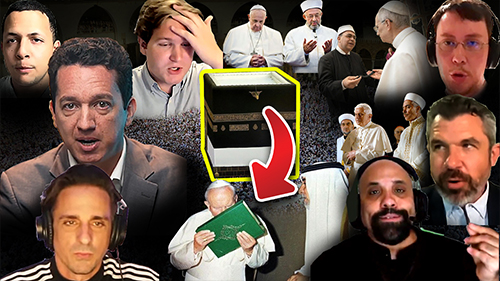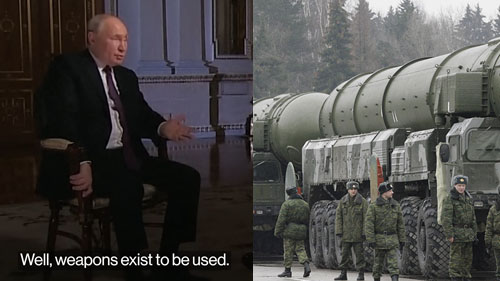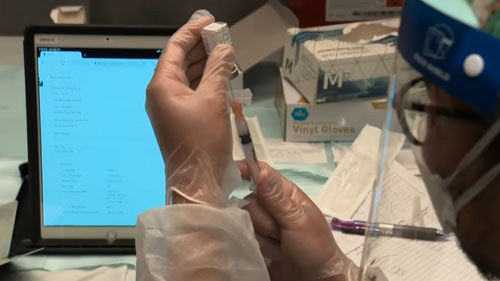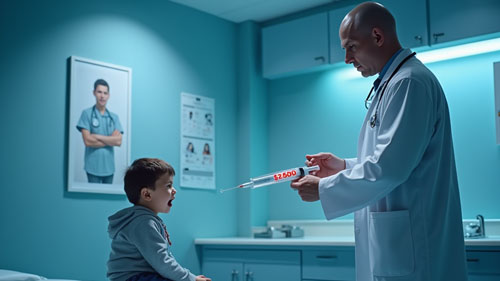| Recent Featured Videos and Articles | Eastern “Orthodoxy” Refuted | How To Avoid Sin | The Antichrist Identified! | What Fake Christians Get Wrong About Ephesians | Why So Many Can't Believe | “Magicians” Prove A Spiritual World Exists | Amazing Evidence For God | News Links |
| Vatican II “Catholic” Church Exposed | Steps To Convert | Outside The Church There Is No Salvation | E-Exchanges | The Holy Rosary | Padre Pio | Traditional Catholic Issues And Groups | Help Save Souls: Donate |  |









 " />
" /> " />
" /> " />
" /> " />
" /> " />
" />




Where To Receive Sacraments
THE QUESTION OF WHERE TO RECEIVE SACRAMENTS IN OUR TIME
QUICK INTRODUCTION AND UPDATE ON THE CURRENT SITUATION
The Vatican II sect under Antipope Francis is becoming more notorious (and basically openly Protestant) by the day. In fact, it looks poised to openly repudiate Catholic teaching against divorce and remarriage. Moreover, the “canonization” of Antipope John Paul II is a major development. (The Vatican II sect will celebrate Antipope John Paul II’s “feast day” on Oct. 22.) As this video explains, in the aftermath of the “canonization,” essentially everyone in full communion with the Vatican II sect is now, in reality, an idolater. As a consequence, in many cases the few validly ordained priests who acknowledge the antipope, who may previously have been options for receiving Communion, are becoming off-limits for Communion. As we’ve repeatedly mentioned, for some time the number of options for Communion has been quickly diminishing. At this point there are almost no options for receiving Communion. That’s simply an unfortunate consequence of the final stage of the Great Apostasy. In case people haven’t figured it out yet, we are in the last days and the deepest part of the Great Apostasy. Those who aren’t convinced of that should see our video. As Our Lady of La Salette said concerning these times: “… only faith will survive.”
The guidelines and points below are of course relevant to priests who operate in “full communion” with Antipope Francis. Sadly, however, the independent priests don’t offer many alternatives. The independent groups and priests who acknowledge Antipope Francis (e.g., the priests of the SSPX and similar groups) are becoming ever more schismatic as a result of an obstinate and prolonged adherence to false positions. And most of the sedevacantist priests (who claim to reject Antipope Francis and the Vatican II sect) hold that souls can be saved in false religions, and condemn the Church’s dogmatic teaching on the necessity of Baptism for salvation as “mortally sinful.” They are horrible and imposing heretics who must not be approached for any sacraments at all. That leaves a Catholic in a situation with almost no options for receiving Communion. (*An imposing heretic, by the way, is a priest who either requires someone to adhere to his false positions, or holds that the true position on a topic is mortally sinful or heretical. For more on that matter, see the guidelines below.)
We are frequently and understandably asked the important question about where people may receive sacraments in this time of the Great Apostasy. As we’ve pointed out for years, it’s a fluid situation. The answer depends upon what priests say and do; what positions they take; how notorious certain priests become; events that occur in the Vatican II sect; etc. The situation in the 1980s was not necessarily the same as the situation in the 1970s, and the situation in the 2000s was not necessarily the same as the situation in the 1990s. In light of the current “ecclesiastical situation” (i.e., the general situation with priests purporting to be Catholic in our day), recent events, and how clear the true positions should be for people at this stage, below are bullet-points with our advice on where one may or may not receive sacraments at the current time.
The reader will notice that one of the most important updates is: AT THIS TIME, IN THE YEAR 2014, AT LEAST IN THIS COUNTRY, WE ARE NOT AWARE OF ANY CHURCH A CATHOLIC SHOULD ATTEND ON SATURDAY OR SUNDAY IN ORDER TO RECEIVE COMMUNION. PEOPLE SHOULD STAY HOME ON SUNDAY AND PRAY 15 DECADES OF THE ROSARY. THAT’S BECAUSE ESSENTIALLY ALL THE PRIESTS ARE CLEAR HERETICS AND THEY GIVE SERMONS OR TALKS ON THOSE DAYS. WE DON’T BELIEVE PEOPLE SHOULD RECEIVE THE SACRAMENT FROM THEM DURING A MASS AT WHICH THEY GIVE A SERMON. HOWEVER, THERE ARE STILL SOME OPTIONS FOR RECEIVING CERTAIN SACRAMENTS (ESPECIALLY CONFESSION), AS EXPLAINED BELOW.
• It’s of course crucial for people to be sure they have been validly baptized. If there is any doubt about how a baptism was performed (either because it was done in a Protestant sect or questionably in the Novus Ordo), a conditional baptism should be performed following the steps in this file: The Steps to convert to the traditional Catholic faith and for those leaving the New Mass – Baptism and Conditional Baptism – the Council of Trent’s Profession of Faith for Converts. We generally recommend a conditional baptism for those coming out of the Novus Ordo or converting from Protestantism. Anyone who would do it properly could perform it, as the 'steps to convert' file explains.
• Before making a confession or receiving a sacrament, one must reach the point where one believes in all Catholic dogmas, is committed never to attend the New Mass again, rejects the Vatican II antipopes and the Vatican II sect, believes in Outside the Church There is No Salvation without exception (no “baptism of desire,” no salvation for those “invincibly ignorant” of the Catholic faith), rejects NFP, won’t support any heretical priests, etc.
SIMPLIFIED GUIDELINES ON RECEIVING SACRAMENTS IN THE CURRENT SITUATION
• Don’t ever attend the New Mass for any reason, of course. It’s invalid and non-Catholic. It must always be avoided under pain of grave sin.
• One must not financially support, in any way, any priest or group that holds false positions. We are not aware of any priests, groups or religious communities in the world (besides our monastery) holding the correct positions in a public, clear and uncompromising way.
• Don’t go to any church in this country (“traditional” or otherwise) for Sunday or Saturday Masses, since basically all the priests are heretics and the heretics give sermons or talks on those days. People should stay home on Sunday and pray 15 decades of the Rosary. (This generally applies to other countries as well.)
• Consistent with the above: don’t go to any Sunday or Saturday Masses of the Society of St. Pius X. Don’t go to any “Masses” of the FSSP or similar groups. (Those groups also cannot be considered to have valid priests, as they utilize “bishops” consecrated in the doubtful New Rite of Consecration.) Don’t go to any Indult Masses or Latin Masses offered in the “diocese”. Don't go to any Sunday or Saturday liturgies of priests in the Eastern Rite. Don’t go to any Sunday or Saturday Masses of priests of the CMRI or similar priests and groups who hold heresy on the salvation dogma, as those heretics frequently give sermons on those days. Sedevacantist priests who condemn the true position on water baptism (i.e., the denial of “baptism of desire”) as either heretical or mortally sinful – and that would include most sedevacantist priests in our day – are imposing heretics. They aren’t an option for any sacrament whatsoever. They should be completely avoided.
• If a priest is a heretic, but is not imposing – and that might apply to a small number of independent or sedevacantist priests – it’s possible that he might still be an option for Communion if he’s somewhat close to our positions on the Counter Church. However, one should not receive Communion from him during his Sunday or Saturday Mass, for he might give a sermon or a talk during that Mass. If he meets the criteria for receiving Communion (and that would be rare), one should only receive Communion from him on a different day of the week. If he only gives Communion on Sunday, then one should simply go without Communion. As stated above, an imposing heretic is a priest who either requires someone to adhere to his false positions, or holds that the true position on a topic is mortally sinful or heretical. In the rare case just described, in which a priest might meet the criteria to be an option for Communion (but only on a day on which he does not give a sermon), to find out if he's an imposing heretic, you can call him up and tell him what your positions are - e.g., that you are a sedevacantist and reject “baptism of desire” - and see how he reacts. This kind of discussion would be necessary when considering a priest (in the rare situation just described) for Communion. However, when going to confession only to a validly ordained Novus Ordo priest or to an Eastern Rite priest, such a discussion about the issues (to find out if the priest is imposing) would not be necessary prior to making the confession (unless the issues were to come up), as explained below.
• Don’t receive Communion from (or be present at the Mass of) any priest who accepts Antipope John Paul II as a “saint.” That essentially means that almost all priests who accept Antipope Francis should not be approached for Communion. It’s possible that there might be very rare exceptions to this principle (e.g., non-imposing independent priests who reject much of the Counter Church and the “canonization” of John Paul II, but still absurdly accept Antipope Francis); however, even in those cases, one should not receive Communion from them at their Sunday or Saturday Masses. Likewise, with an independent or Eastern Rite priest who doesn’t accept John Paul II as a “saint,” in order to be approached for Communion he would also have to reject false ecumenism and hold that the Eastern schismatics should be converted to the Catholic faith. (He would not have to hold the correct position on water baptism and the salvation dogma, as many priests before Vatican II were in heresy on that point. But he could not impose his false position on true Catholics or consider the true position heretical or mortally sinful.)
• There are still more options for Confession, and it’s crucial that people who have mortal sins that need to be confessed find a priest from whom they can receive absolution. Options for Confession include: an old Novus Ordo priest ordained before 1968, who says: “I absolve you from your sins, in the name of the Father, and of the Son, and of the Holy Ghost”; a priest ordained in the Eastern Rite; a non-imposing independent “traditional” priest; etc.
• The New Rite of Ordination is invalid. It was instituted by the Vatican II sect on June 18, 1968. Almost all diocesan (i.e., non-independent, non-Eastern Rite priests) ordained since that time were ordained in it. Since “priests” ordained in the New Rite of Ordination are invalid, any mortal sins confessed to such “priests” must be confessed again to a valid priest, once a person is prepared for confession.
• To investigate potential options for confession, people can also look in their telephone books for “Catholic church” or “Eastern Catholic church” or “Byzantine Catholic church” (not “Orthodox”) listings in cities or towns in their area. Looking up those churches, and calling them, might aid in a search for validly ordained priests (either ordained in the Eastern Rite or before 1968) to whom one might go to confession. Note: when going to confession only to an old Novus Ordo priest (ordained in the traditional rite) or to an Eastern Rite priest, one doesn't need to get into the details of one's position or discuss the various theological issues (to find out if he's imposing) prior to making the confession (unless the issues were to come up). At some point, however, one should send him or give him the information from our website or material (e.g., a DVD) covering the true positions people need to take and what has happened.
• There is of course no obligation to attend Sunday Mass when there isn’t a fully Catholic option in one’s area. Therefore, there is no obligation to attend Sunday Mass in our day because basically all the priests are heretics.
• People should pray 15 decades of the Rosary each day.
• We also encourage true Catholics who are presumably in the state of grace to make spiritual Communions.
• Although these guidelines should answer most questions on this matter, people who have further questions can call us at 585-567-4433 and someone can help you.
THEOLOGICAL CONSIDERATIONS
So, to put it simply: there are more options for confession (although they are also becoming harder to find), but very few options for receiving Communion. People should stay home on Sundays and pray 15 decades of the Rosary. If people are holding and practicing the true Catholic faith without compromise, working to spread it, fulfilling their state in life, etc., and have successfully confessed all grave sins (if there were any) committed in their life after baptism to a validly ordained priest, they can feel confident that they are in the state of grace, even though they may not have anywhere to receive Communion.
The reason there is more latitude in approaching someone for confession than for Communion is twofold: 1) making a confession and receiving absolution doesn’t entail showing up at the heretic’s Mass or liturgy; and 2) for most people (and obviously for those who may have grave sins to confess), there is a greater necessity to receive absolution. Hence, a priest who is not an option for Communion could still be an option for confession, if he’s validly ordained, uses the proper form, and does not impose his false views upon you.
By the way, what radical schismatics and “no jurisdiction” schismatics don’t understand about God and this matter is that the issue of where it’s permissible to receive sacraments in this unprecedented crisis and apostasy is not one governed by dogmatic decrees. It’s not a dogmatic issue. It is, rather, an issue that involves making prudential decisions and judgments about the current situation, and applying Catholic principles to this crisis. Moreover, when dealing with matters of ecclesiastical law and how to act in a crisis, the principle that “necessity makes licit that which is illicit” (as long as the faith is not denied) is important to understand and keep in mind. It’s why people could receive sacraments from priests they normally would not approach if they had other options. However, at this point the Vatican II sect is so notorious, the independent priests are so schismatic, and the sedevacantist priests (for the most part) are so openly heretical on the salvation issue, that we believe the above guidelines (with many fewer options for Communion) are the correct ones.
STAYING HOME ON SUNDAY SHOULD NOT DIMINISH ONE’S ZEAL OR HAMPER ONE’S PRACTICE OF THE FAITH AT ALL
The fact that (at least in this country, and generally speaking in other countries) people should be staying home on Sunday should not in any way diminish their zeal for practicing the Catholic faith. It should not lessen people’s enthusiasm for praying, living the life of grace each day, saving their soul and that of others, evangelizing, spreading the faith, growing in their relationship with God, etc. On the contrary, a recognition of where we are in history should spur people to a more aggressive pursuit of spiritual perfection, as well as the desire to practice and spread the faith so that as many souls as possible can be saved in the short time left. Moreover, while God allows the darkness of the world to be ever greater, He counteracts that by making even more powerful graces available for those who practice and live the faith without compromise, and take advantage of the extra power given to the Rosary, the Hail Mary, etc. in our day.
People who think that the Catholic faith ceases to be practiced when there’s nowhere to attend Mass or receive sacraments on Sunday either aren’t Catholic or have an inadequate understanding of the faith. The Catholic faith is lived day in and day out. In fact, the reason so many people have followed heretical groups to their perdition is that their entire “faith” and “relationship with God” is defined by where they go on Sunday. They are purely “Sunday Catholics,” which means that they are not genuine Catholics at all.
Sign up for our free e-mail list to see future vaticancatholic.com videos and articles.
Recent Content
^